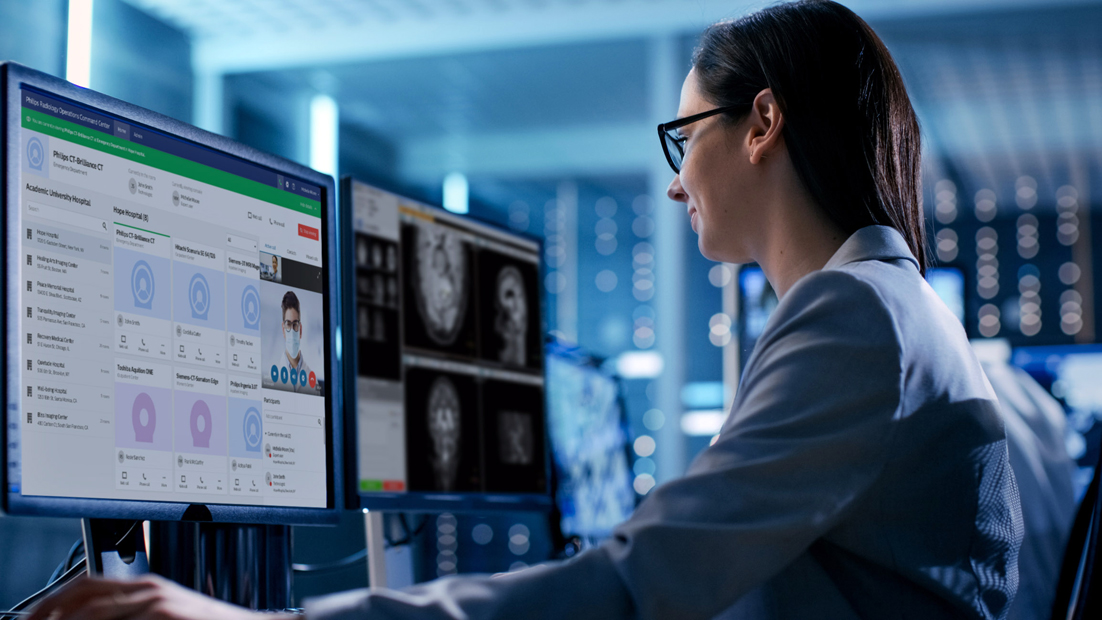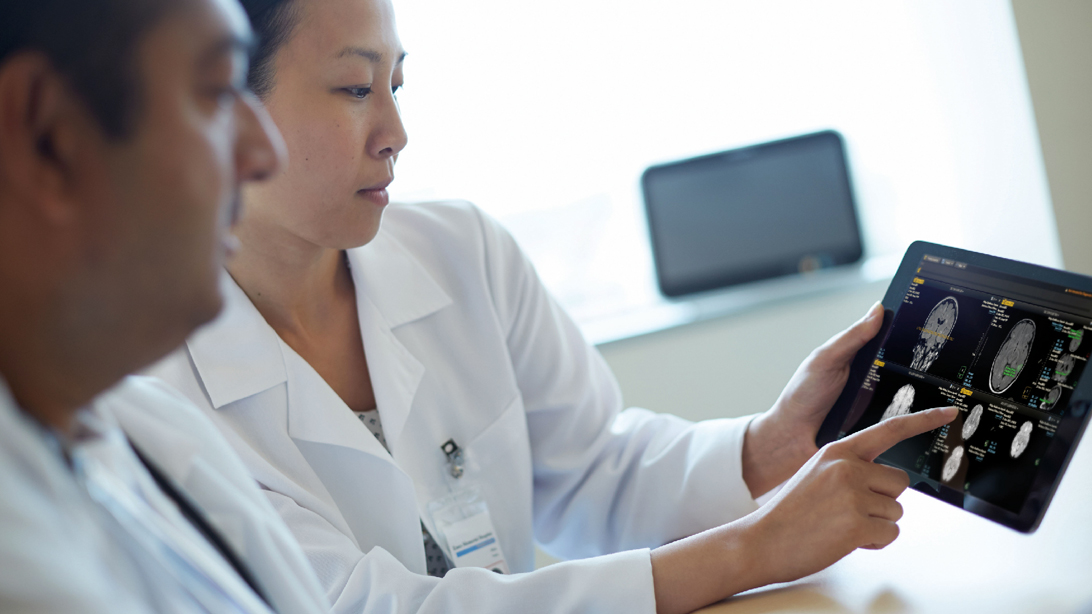Philips launches AI diagnostics at RSNA
- December 5, 2022
- Steve Rogerson

Philips announced a portfolio of AI-powered smart diagnostic systems at last week’s Radiological Society of North America (RSNA) annual meeting in Chicago.
They are designed to help providers efficiently deliver patient-centric, high-quality imaging services.
Radiology plays a critical role in diagnosing and guiding patients into the right treatment plans. However, with increasing staff shortages and workloads, radiologists and staff continue to struggle to manage and interpret the huge volume of data captured to provide quality care for each patient.
In a recent report, 24% of radiology leaders surveyed said managing the sheer volume of data available to them was their top data-related issue, with nearly two-thirds (65%) indicating their staff were overwhelmed by data overload.
“With 47% of radiologists experiencing burnout, our customers are looking for innovations to help reduce their workloads and seamlessly integrate into their day-to-day operations,” said Kees Wesdorp, business leader of precision diagnosis at Philips. “With smart intelligence built into imaging systems and informatics across the radiology workflow, Philips’ integrations condense large volumes of data into patient-centric actionable insights for earlier and more definitive diagnosis and treatment.”
Some of the biggest challenges facing radiologists today are driven by managing complex, disconnected workflows which can negatively impact patient care, staff experience, outcomes and cost. Philips says its interoperable and vendor-neutral operational products and smart connected imaging systems help streamline and transform the radiology workflow to improve patient and staff experience; advance clinical and diagnostic confidence for better health outcomes; and drive a sustainable, resilient diagnostic infrastructure to help lower the cost of care.
This includes AI-enabled technology that automates and accelerates routine and repetitive tasks to generate patient-centric insights from large volumes of data to help improve productivity.
For example, the Imaging Orchestrator ROCC radiology operations command centre and Ultrasound Collaboration Live pioneer the virtualisation of radiology, extending care and collaboration beyond traditional models.
Imaging Orchestrator ROCC is a vendor-neutral, multi-modality, multi-site telepresence offering that provides tele-acquisition capabilities and seamlessly connects imaging experts at a command centre with technologists at scanning locations across an organisation.
Ultrasound Collaboration Live tele-ultrasound is available on Philips Epiq Elite and Affiniti ultrasound systems so teams can securely video stream from their ultrasound system to a PC or mobile device for remote, on-demand access to clinical expertise regardless of location.
Philips also introduced AI-enabled image interpretation to help prioritise patient worklists based on clinical outcomes and expand diagnostic capabilities with its visualisation workspace, with enhanced features to automate reporting and help drive earlier and more definitive diagnosis. Also featured was PerformanceBridge enterprise performance analytics to enhance operational decision-making through vendor-neutral, real-time data analysis to help improve productivity and reduce costs.
Also launched at RSNA, AI-powered MR SmartSpeed is designed to increase speed, image quality and productivity and drive diagnostic confidence with improved image resolution via the AI reconstruction algorithm. It uses the firm’s speed engine and AI reconstruction technology delivered at the source of the MR signal to ensure no data loss.
Philips spotlighted its Spectral CT 7500, the company’s latest dual-detector CT system helping radiologists better characterise disease and reduce scan times at the same dose levels as conventional scans. Used in oncology imaging, cardiac imaging and interventional radiology, the system has demonstrated a 34% reduction in time to diagnosis, a 25% reduction in repeat scans and a 30% reduction in follow-up scans.

Philips also introduced the Ultrasound Compact 5000 series and the Lumify handheld ultrasound, now featuring pulse wave Doppler for all physicians – from cardiologists and radiologists to emergency care – to assess hemodynamics quickly in cardiac function anytime, anywhere. Also making its first appearance at RSNA was Fluoroscopy 7000 N and ProxiDiagnost N90, combining digital radiography and high-end nearby fluoroscopy to help enhance clinical confidence and improve patient and staff satisfaction.
At the event, Philips showed how its informatics uses intelligence to provide patient-centric insights, integrate visualisation tools into the workflow and support clinical collaboration to speed up the detection of diseases by leveraging intelligence everywhere along the patient care journey.
“We are uniquely positioned to apply new, optimised algorithms to massive data sets to provide prescriptive analytics to our customers, helping them improve both clinical and operational efficiencies within their organisations,” said Reema Poddar, general manager for diagnostic and pathway informatics at Philips.
The firm’s visualisation workspace now includes more than 70 clinical applications for clinical insights, designed to support workflow and diagnostic confidence as well as automated processing for multiple clinical domains across the continuum of care. New applications include the MR cardiac suite, an all-in-one environment for cardiac MR, providing one overview for all imaging data types to support diagnosis and report creation.




